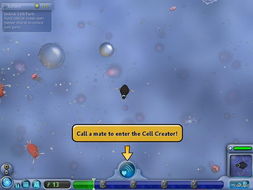Oh, hello there! Ever wondered how the English language has become such a global sensation? Well, let's dive into the fascinating world of English and uncover why it's the lingua franca of the modern era. From its rich history to its present-day influence, English has a story to tell, and I'm here to share it with you in all its glory.
The Roots of English: A Journey Through Time
Imagine you're walking through the misty, ancient forests of England, where the language we now know as English began to take shape. It all started with the Anglo-Saxons, a group of Germanic tribes who settled in Britain around the 5th century. They brought with them their own language, Old English, which was a blend of various Germanic dialects.
As time went on, the Normans invaded England in 1066, bringing their own language, Old Norman French, to the island. This language mix created Middle English, a period of linguistic chaos and innovation. Poets like Geoffrey Chaucer and William Shakespeare would later emerge, shaping the English language into what it is today.
The Spread of English: A Global Adventure
Now, let's fast-forward to the 16th and 17th centuries. This was a time of exploration and colonization, and English was right there in the thick of it. The British Empire expanded across the globe, and with it, the English language. From North America to Australia, from India to Africa, English became the lingua franca of trade, politics, and culture.
But it wasn't just the British who were spreading English. The United States, Canada, and other former British colonies also embraced the language, making it one of the most widely spoken languages in the world. Today, English is the official language of 54 countries and is spoken by over 1.5 billion people worldwide.
The Power of English: A Global Language for Global Opportunities
So, why is English so powerful? For starters, it's a language of global business. Many multinational corporations use English as their official language, making it essential for anyone looking to succeed in the global marketplace. English is also the language of science, technology, and innovation, with the majority of scientific research and technological advancements being published in English.
But it's not just about business and science. English is also a language of culture and entertainment. From Hollywood movies to international music, English has become the language of global pop culture. It's the language of the internet, too, with the majority of websites and online content being in English.
The Challenges of English: A Language of Diversity
While English is a powerful and influential language, it's not without its challenges. One of the biggest challenges is the diversity of English itself. There are countless variations of English, from British English to American English, Australian English, and more. This diversity can sometimes lead to misunderstandings and confusion.
Another challenge is the issue of language dominance. While English is spoken by billions, it's often at the expense of other languages. This has led to concerns about cultural homogenization and the erosion of linguistic diversity.
The Future of English: A Language for a Connected World
So, what does the future hold for English? With the world becoming increasingly connected, it's likely that English will continue to grow in influence. However, it's also important that we recognize and respect the diversity of languages and cultures around the world.
As English continues to evolve, it will undoubtedly adapt to the needs of its speakers. New words, phrases, and even accents will emerge, reflecting the ever-changing landscape of our global community.
In conclusion, English is a fascinating language with a rich history and a bright future. Whether you're a native speaker or a learner, there's always more to discover about this incredible language. So, keep exploring, keep learning, and who knows, maybe one day you'll be the one sharing the wonders of English with the world!








































